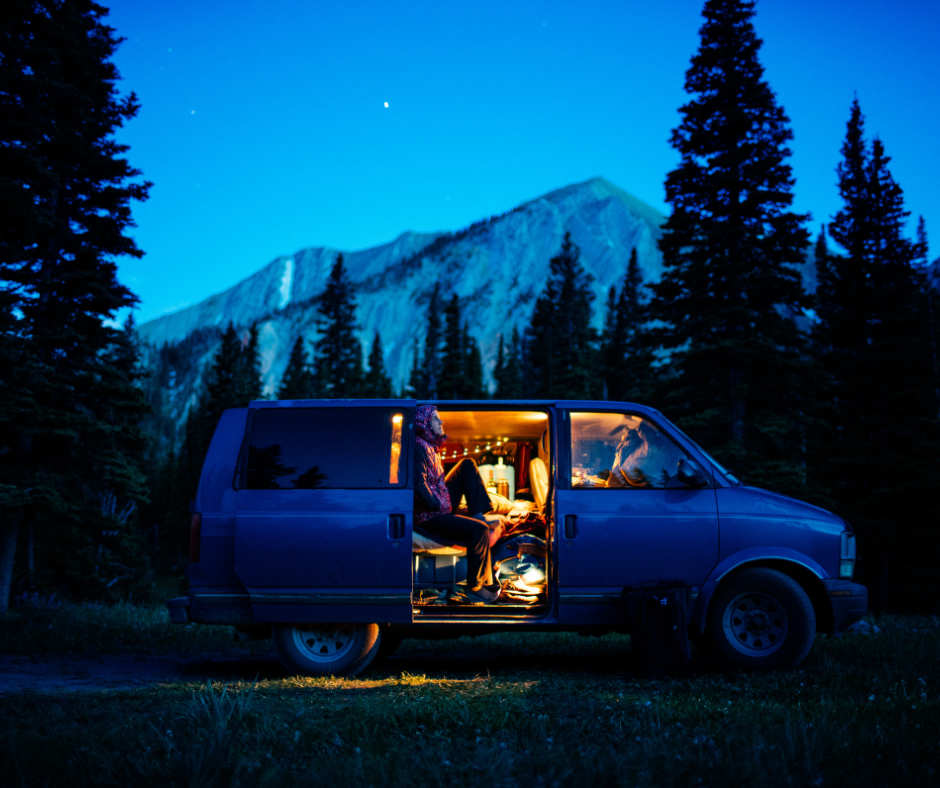
As the chill of winter sets in, many adventurous souls are drawn to the allure of van life and car camping. There’s something truly magical about hitting the road, seeking out new adventures, and embracing the raw beauty of nature. However, winter brings with it a unique set of challenges that can test even the most seasoned travelers. From plummeting temperatures to treacherous road conditions, it’s essential to be prepared for whatever Mother Nature throws your way.
As the Founder & CEO of Ready For Camp – Where Adventure Awaits, with 28 credentials of entrepreneurship under my belt, I’ve seen my fair share of winter camping mishaps. That’s why I’m here to offer you some invaluable advice on the dos and don’ts of winter van life and car camping. So buckle up, because it’s time to hit the road and embrace the great outdoors like never before.
The Dos:
- Invest in Quality Gear: When it comes to winter camping, your gear can make or break your experience. Invest in high-quality sleeping bags rated for cold temperatures, insulated sleeping pads, and a reliable four-season tent to keep you warm and protected from the elements.
- Layer Up: Dressing in layers is key to staying warm in the winter months. Opt for moisture-wicking base layers, insulating mid-layers, and a waterproof outer shell to keep you dry and comfortable no matter the weather.
- Stay Hydrated: It’s easy to forget to drink enough water when the temperatures drop, but staying hydrated is crucial for staying warm and healthy. Invest in a quality insulated water bottle and make sure to drink plenty of fluids throughout the day.
- Plan Ahead: Before embarking on your winter camping adventure, take the time to research your destination and familiarize yourself with local weather conditions and regulations. Plan your route carefully, and always have a backup plan in case of inclement weather or road closures.
- Practice Safe Driving: Winter road conditions can be unpredictable, so it’s essential to practice safe driving habits. Slow down, increase your following distance, and always carry chains or snow tires if you’ll be traveling through snowy or icy terrain.
- Embrace the Cold: While it may be tempting to huddle up in your sleeping bag at the first sign of cold weather, don’t be afraid to embrace the chill and get outside. Winter offers some of the most stunning landscapes and outdoor activities, from snowshoeing and cross-country skiing to cozying up by the campfire under a blanket of stars.
- Stay Connected: In remote winter camping locations, it’s crucial to stay connected to loved ones and emergency services. Invest in a reliable satellite phone or personal locator beacon, and always let someone know your itinerary and expected return date.
- Practice Leave No Trace: Respect the environment and leave your campsite better than you found it. Pack out all trash, minimize your impact on fragile ecosystems, and follow Leave No Trace principles to ensure that future generations can enjoy the great outdoors.
The Don’ts:
- Don’t Underestimate the Cold: Winter weather can be unforgiving, especially in remote locations. Don’t underestimate the cold or overestimate your abilities. Always err on the side of caution and be prepared for the worst-case scenario.
- Don’t Neglect Maintenance: Before hitting the road, make sure your vehicle is in top condition and ready to handle winter driving conditions. Check your tires, brakes, battery, and fluid levels regularly, and carry a winter emergency kit with essentials like a shovel, ice scraper, and jumper cables.
- Don’t Forget to Insulate: Proper insulation is crucial for staying warm and comfortable in your vehicle during the winter months. Invest in insulated window coverings, draft blockers, and a portable heater or wood stove to keep your living space cozy and warm.
- Don’t Skimp on Safety: Safety should always be your top priority when winter camping. Never take unnecessary risks or venture into unfamiliar terrain without proper gear and preparation. Trust your instincts, and if something doesn’t feel right, don’t be afraid to turn back or seek help.
- Don’t Overpack: While it’s essential to be prepared for winter camping, don’t overpack and weigh yourself down with unnecessary gear. Stick to the essentials and prioritize lightweight, multi-purpose items that will serve you well in a variety of situations.
- Don’t Ignore Warning Signs: Pay attention to warning signs of hypothermia, frostbite, and other cold-related injuries. If you or a member of your group begins to experience symptoms such as confusion, drowsiness, or numbness, seek medical attention immediately and take steps to warm up and dry off.
- Don’t Leave Food Unattended: In winter camping areas, wildlife may be more active in search of food. Don’t leave food unattended or accessible to animals, and always store your food securely in airtight containers or bear-proof canisters to prevent unwanted visitors.
- Don’t Forget to Have Fun: Despite the challenges, winter camping can be an incredibly rewarding experience. Don’t forget to take time to relax, unwind, and soak in the beauty of your surroundings. Whether you’re snuggled up in your sleeping bag with a good book or roasting marshmallows over the campfire, cherish these moments and make memories that will last a lifetime.
In conclusion, winter van life and car camping can be an exhilarating adventure for those brave enough to embrace the cold. By following these dos and don’ts, you’ll be well-equipped to handle whatever challenges come your way and make the most of your winter camping experience. So pack your bags, hit the road, and get ready for the adventure of a lifetime. Remember, with proper preparation and a sense of adventure, the possibilities are endless.
